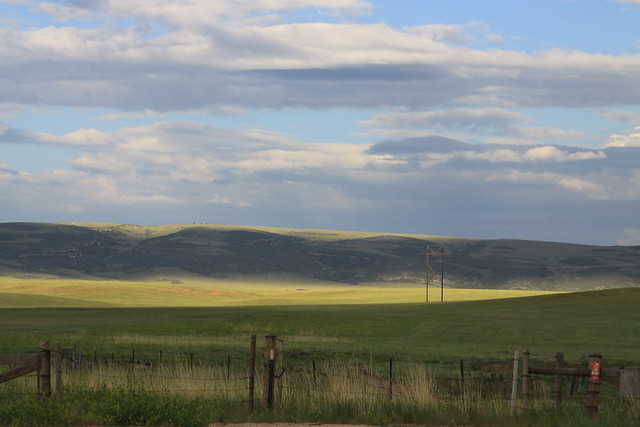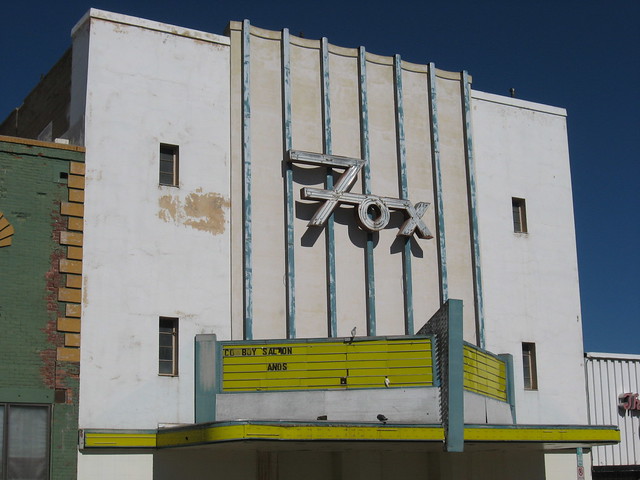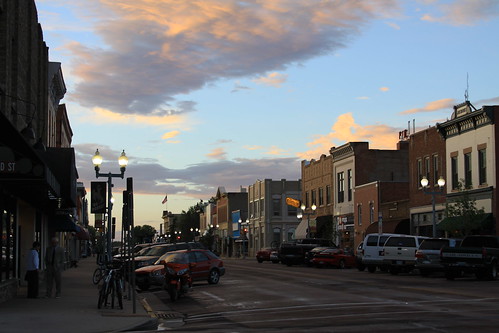Starlight Requiem
God is an intelligible Sphere whose centre is everywhere and whose circumference is nowhere.
-- Alan of Lille
* * *
This is my Father's world,
And to my listening ears,
All nature sings, and round me rings
the music of the Spheres...
“What’s wrong?” My then-boyfriend asked me when I stopped singing. I turned to face him with a frown.
“The ‘music of the spheres?’” I said over the noise of the worship service. “That’s so anachronistic. It’s an image from a geocentric universe.”
“But it’s really just a metaphor,” he offered helpfully. I shook my head.
“But that’s exactly the kind of thing that gets me funny looks at college when I tell people I’m a Christian now,” I protested. Some of the other parishioners started eyeing me doubtfully, so I shrugged it off and joined in at the refrain.
Back when I was twenty years old, I could have sworn things like that mattered. I grew up in Montana as the youngest child of amateur geologists who worshiped a faceless but benevolent God in the vast church of Nature, and the dome of that supposed crystalline sphere formed our cathedral. My mother’s God, the grand scientist driving Nature, wasn’t exactly an absent watchmaker—but He was punctual and a little distant, and He was careful to keep that watch brightly polished and wound tight. As a neophyte Christian with one foot still planted inside that starry cathedral, I was reluctant to denigrate Him, or so I thought, with such an outmoded view of the universe. The stars were most definitely not fused into some crystalline globe, I adamantly declared, and no music filled the skies with a sympathetic ring from their revolution—and it secretly embarrassed me to hear such a thing proclaimed in the church I attended, seemingly to confirm all the stereotypes my old friends held about my new faith.
 And yet, when I was a child living in a house of science, my childhood cathedral was dominated by the turning of the spheres and I never knew it. You see, star watching guides don’t talk about the motion of the earth around the sun—they talk about the night sky and sun revolving eternally around the horizon line, with Polaris its hub and the constellations churning about in their various declinations. The stock-still earth served as my kneeling-bench as I gazed up, up, into the rood-loft of the night and learned the names of the stars in the Northern Cross in almost the same way that a medieval priest might have taught his flock the names of the Patriarchs whose lives were painted on the walls. In my head, I knew that the earth turned around the sun; but in the deep recesses of my imagination, God’s stars and His sun turned inexorably around the earth.
And yet, when I was a child living in a house of science, my childhood cathedral was dominated by the turning of the spheres and I never knew it. You see, star watching guides don’t talk about the motion of the earth around the sun—they talk about the night sky and sun revolving eternally around the horizon line, with Polaris its hub and the constellations churning about in their various declinations. The stock-still earth served as my kneeling-bench as I gazed up, up, into the rood-loft of the night and learned the names of the stars in the Northern Cross in almost the same way that a medieval priest might have taught his flock the names of the Patriarchs whose lives were painted on the walls. In my head, I knew that the earth turned around the sun; but in the deep recesses of my imagination, God’s stars and His sun turned inexorably around the earth. Now that I am several years further down the road in my stargazing (and in my Christian faith), I’ve come to realize that I needed both views of the stars in order to help me cope with the vastness of a world I don’t always understand. For one, I was surprised to discover that my smug dismissal of the geocentric world is really a side-effect of my recent urbanization. When I looked up into the Chicago sky some years ago, my earth spun off its axis, zipping around the sun, and I realized as I gazed upon so much empty, black space in the sky how deep it was, how lonely. That heliocentric universe, lit up by the light of our own hubris, was admittedly vast and mysterious; its unknown workings fascinated me. But even though it made me feel awe, it also left me feeling cold. There is no good light to see a loving Creator by in that sky; His hand vast, but it is also harder to see as it turns the universe around a hub that science still can’t locate.
In contrast, anyone who has spent time in wilderness knows how self-evident the geocentric universe is. Back in my lonely stargazing days in Laramie, the stars burned so thick in the air that I couldn’t slot a fingernail’s width between them. Without the light of town to block my view, the sky looked both solid and yet strangely alive with motion. The closeness of those stars offered a comfort that the other, neverending sky never could; as they moved restlessly around my inert frame, I could also see the Hand which pushed them around their imaginary axis—and I could also imagine, at least briefly, that such a Hand just might also hold me within its grasp. Back in those years of my greatest doubt, this was the sky I tried with such care to re-create on my dorm ceiling with tiny glow-in-the-dark stars, a string compass, and a star chart. Even though I hung out with intellectualist astronomy students and agnostics back then, I didn’t think I wanted a universe warmed to a few degrees Kelvin. It was that close, immediate sky that a transcendentalist friend of mine adored when he went camping for the first time in his life; as he dropped his empty flask to the earth, he drunkenly exclaimed, over and over again, “Oh my God, look at all the stars…”
I could, in my own way, understand his reaction. For someone who had never once had seen anything more than the Big Dipper on a city skyline, the pressing weight of the spheres against his mind now threatened to overwhelm him. I, however, had seen and known both of these sides to the universe, and spending too much time under the turning spheres after my conversion made me start to take Him for granted. I still needed to figure out how to make these two worlds fit together under the same night sky.
* * *
My grandmother, matriarch and axis of my family’s careful universe, passed away last year. My mother was especially grieved at her passing, but the one who suffered most, and the most silently, was my sister Sparrowhawk. She held a deep affection for my grandmother, being just as restless and free spirit as she was, and Sparrowhawk’s own failing and sometimes violent marriage gave her a sense of kinship to my grandmother which no one else shared. In the days before Grandma’s funeral, none of us understood the weight of the grief and rage Sparrowhawk kept inside until it flared out unpredictably against us all.
Her most frequent victim of that fulminate grief, however, was her eldest daughter. My niece Kestrel had just turned fourteen and, just like her mother had once done, she found herself straining at the jesses for reasons she couldn’t explain, desperate to break loose, go haggard. On the day before the funeral, my sister and Kestrel had a vicious spat over something pointless; Sparrowhawk’s hidden tinder met Kestrel’s flame, and within seconds a screaming match flared up in our tiny hotel room. I made the mistake of interfering, and predictably, I escaped with a scorched face and singed fingers to mock my foolishness.
Later that night, after tempers died down to embers and we all sat sulking in my grandfather’s kitchen, Kestrel looked up towards me. “Aunt J., can you help me with something?” She asked over her schoolbooks.
“Sure, what’s up?” I asked.
“Can you help me count stars to figure out how bright the sky is? I have to do a star magnitude study for my science class while I’m out of town,” she explained. She and I slipped outside to the backyard to the comforting veil of darkness which hid our losses.
Once outside, we stood for a while at the blank stillness as she tried to tally up the night sky. “Wow, I’m getting, like, sixty stars. That’s pretty good, isn’t it?” Kestrel asked. I tried hard not to smile.
“Kestrel, hasn’t your mom ever taken you stargazing out-of-town?” I asked, baffled. She shook her head, and I tried hard not to growl in disapproval at my sister’s apostasy. ‘That’s it, we’re headed out,” I grumbled, which made Kestrel smile. “Grab a coat.” We slipped out of the house, away from our family’s muted rage and silent grief, to visit the stars.
In a real sense, these stars which Kestrel and I drive beneath are my grandmother’s. I drive several miles west out of Lewistown to where the road turns toward the ghost town where my grandmother grew up, and I pull off the highway onto a suggestion of a dirt road, just a couple of bare lines cut through the wheatgrass. The darkness slams a lid over our car, pierced only by the dome light as Kestrel gets out of the passenger seat. We lean back against the trunk of the car; after a couple of minutes, her eyes adjust to the perfectly moonless night, and she gives a low whistle. “God, look at all the stars,” she whispers reverently. I smile inwardly.
We do a short catalog of the stars in the night sky, and after some scientific discussion, Kestrel decides that she can see up to magnitude seven stars in the sky.
“Not so fast,” I tell her. “Look to the east.” She peers over to where a dark pink smudge creeps up the edge of the sky.
“You can’t really see stars at that magnitude unless you get about forty miles away from town lights,” I tell her. “That light pollution is hiding a lot more than you realize.” The idea hits her like a revolution.
“So, there’s even more than this?” She gapes in awe.
“Yeah, Kestrel. There’s a lot more stars than even this.”
She sits silently in thought while I teach her the names of the constellations and their courses; I tell her about the ecliptic, the declination of the night sky, running through the same celestial catechism I had learned by heart but she was never offered. In the dark, I can almost feel her mind punching through the boundless limits of her new-found sky, escaping the confines of her youth and disappointment into the arms that turn the heavens.
A sudden realization stops her short. “This is what Great-Grandma saw every night on the farm, wasn’t it?” Kestrel asks me. As I lean against the trunk of my car, parked in a field on the rim of the Judith Basin, her question turns my mind over the axis of the heavens, back to my grandmother’s adolescence: before her own grand rebellion, before my grandfather and their disastrous marriage. I see her just as young, as wild and angry as I once was and my niece is now becoming, her thin, still form blocked in silhouette against the revolving sky; she sits on the back of her father’s tractor in a frozen landscape of hard winter wheat, watching the same sky that her great-granddaughter now ponders with an equal and restive fascination. In the edges of my niece’s blue eyes I see reflected her great-grandmother’s, restless with anger at the vast cage that her father’s acreage makes of her freedom. As she combs the endless skies with her eyelashes and plumbs the depths of the same shifting stars I now watch, suddenly she finds what I had lost so long ago and just so recently discovered:
“The music, in the stars. Jackrabbit, can you hear it?”
PHOTO CREDIT:
1) Night Sky (Wish you were here Andreas) by Indian.summer 1901's Flickr photostream:
http://www.flickr.com/photos/27962415@N07/ / CC BY-NC 2.0
2) Night sky in Wyoming, taken by Gary Elasser:
2) Night sky in Wyoming, taken by Gary Elasser:









